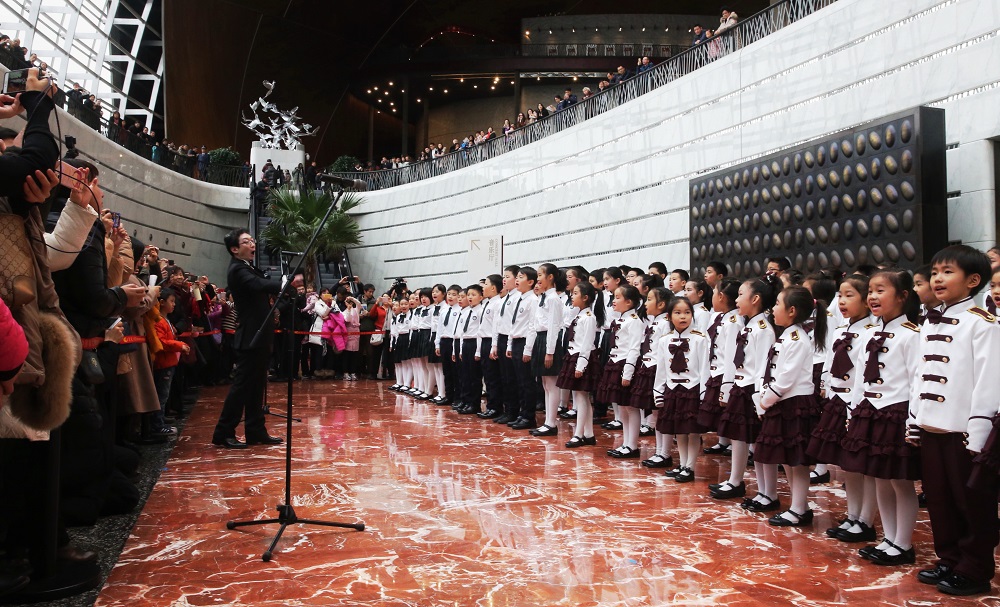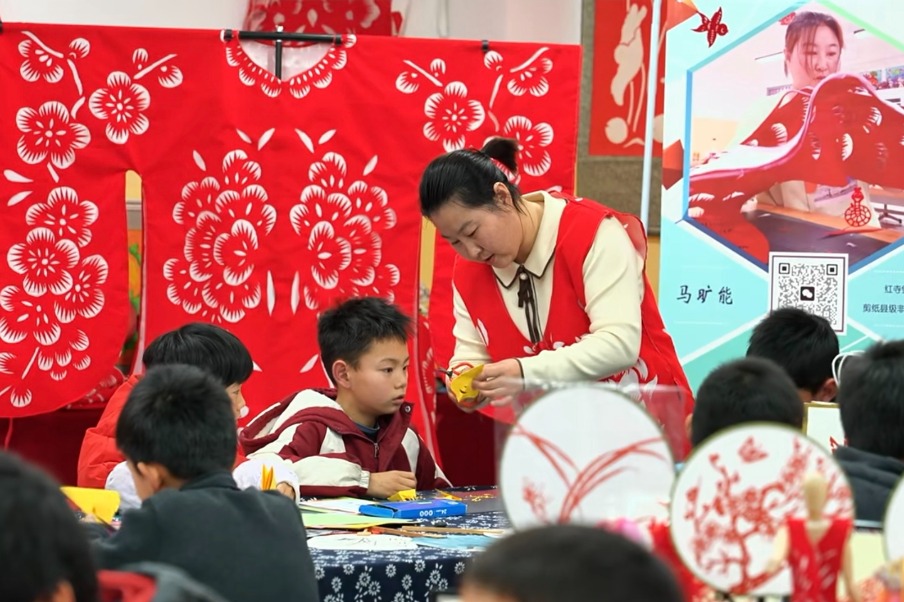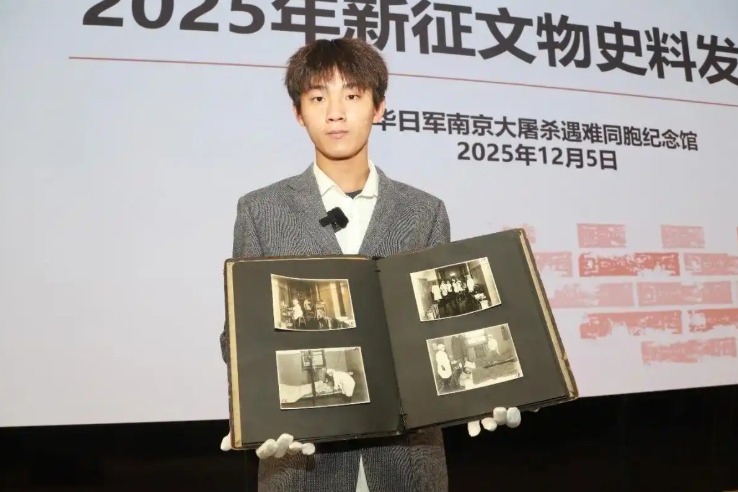Young audiences develop an ear for classical music


Lyu Jia, music director of the NCPA and principal conductor of its orchestra and chorus, said: "It is such an encouraging environment for classical music to develop in China. The country has a healthy music education system and a large number of young people who are currently studying musical instruments, whether in schools or with private tutors. Most important, they remain passionate and exuberant."
The average age of musicians with the NCPA Orchestra and NCPA Chorus is 30.
Lyu, a Shanghai native born into a musical family in 1964, studied piano and cello at a young age. He has appeared at many European opera houses, including La Scala and the Verona Opera in Italy, and Deutsche Opera Berlin in Germany.
He returned to China, joined the NCPA in 2012, and feels that the young audiences now attending concerts reflect a boom in classical music.
Lyu said: "When I worked in Europe, I was part of the classical music scene there. Compared with Europe, classical music audiences in China are very young and vibrant. I returned home and joined the NCPA because it's much more exciting to be part of the country's classical music scene. It's very rewarding to see so many young people in the audience now."
The NCPA, also known as "the egg", was designed by French architect Paul Andreu. It has been the talk of the world's performing arts industry since it opened in December 2007, attracting performances by a long list of top international artists and symphony orchestras.
More than 9,600 performances have been staged at the venue since 2007, and last year alone, more than 900 were held there.
Lyu also said classical music in China began to become more popular after the reform and opening-up policy was introduced 40 years ago.
"Many young people became fixated with classical music due to their parents. It's not unusual for parents to introduce their kids to music. What excites me is that young people are not rejecting this music and are discovering it on their own when they grow up," he said.
At a time when most opera houses around the world are cutting their budgets, the NCPA has staged its own operatic productions, and holds an annual festival at which dozens of offerings from overseas are performed.
It also launched an opera film project in 2013 to widen the popularity of classical music. Of the 76 operas the NCPA has produced since 2007, nearly 30 have been made into films.
In a new drive to reach younger audiences in China, the NCPA has launched free online broadcasting.
Since 2011, its online platform has livestreamed more than 100 classical music concerts, with each one receiving more than 1 million views on average.
Shi Yingying, head of the NCPA's online classical music channel, said: "When we launched the platform, it was hard to build cooperation with streaming services. Classical music concerts only catered to a minority taste. For internet users, who are mostly young people, this was not a major draw."
On Nov 22 and 23, the Berliner Philharmoniker gave two sold-out performances at the NCPA under the baton of Venezuelan conductor Gustavo Dudamel, with a repertoire including Gustav Mahler's Symphony No 5 in C-sharp minor and Dmitri Shostakovich's Symphony No 5 in D minor, Op. 47.
In addition to the audiences in the concert hall, more than 1,500 people watched the two performances at three smaller venues in the NCPA, and even more watched them online.
Shi said, "We are literally bringing classical music into people's homes, where we hope that we'll be able to recreate the sensation of friends gathering to celebrate music together."
Star pianist Lang Lang performed with the Berliner Philharmoniker on Nov 23, when he played Mozart's Piano Concerto No 24 in C minor, K. 491. He said, "When I started to play piano many children had already started to learn it. There was a vibrant market.
"The piano is a bridge between East and West. It is a gateway for Chinese to approach the world. For most Chinese, classical music is quite new. We don't have the concept that it is from the old times, say 200 or 300 years ago. We have a fresh image of Mozart and Beethoven, and a deep respect for these composers."
The 36-year-old, who was born in Shenyang, capital of Liaoning province, studied piano from age 5, and was inspired by watching a film in the Tom and Jerry cartoon series called The Cat Concerto, which features Franz Liszt's Hungarian Rhapsody No 2. He now plays to sold-out houses around the world and has become a role model for millions of young Chinese who are learning classical music.
After two years' preparatory work, Lang is poised to release his latest album early this year, aiming to make classical music much more interesting and accessible to a wider audience.
- Taiyuan ski resort reflects thriving ice-snow economy
- Lhasa's dancing yak mascots become online sensation
- China's postal services deliver 12.9% growth in Jan-Nov
- Winter swimmers dive into frigid waters in Harbin
- China launches new satellite
- China's railway passenger trips hit new record in first 11 months





































